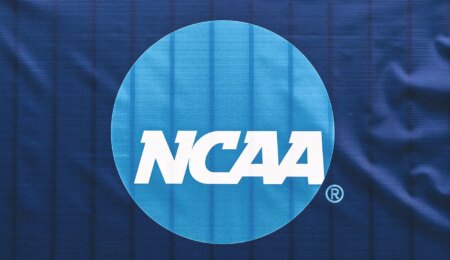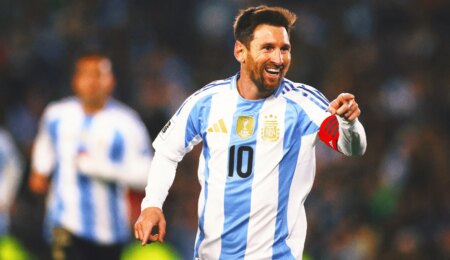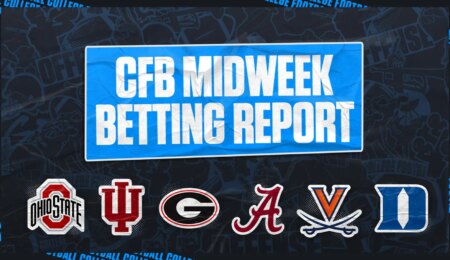The WWE Chamber in Toronto: An Anthem of Tension
The WWE Chamber event in Toronto on Saturday night was marred by a chorus of boos as the "Star-Spangled Banner" was performed, reflecting the growing tensions between the United States and Canada. The Rogers Centre, a venue known for its electric atmosphere, became the latest stage for the fierce feud ignited by President Donald Trump’s threat of tariffs on Canadian imports. American commentator Pat McAfee, known for his fiery on-air personality, did not minced words in his response to the heckling. As the pre-match ritual began, Canadian singer Elizabeth Irving started her rendition of the U.S. national anthem, only to be drowned out by the jeers from the crowd. McAfee, a former NFL punter, took to the airwaves to voice his frustration. "These are the most stacked Elimination Chambers that the WWE has ever had," he began, "but it kinda sucks that it’s in the terrible country of Canada that booed our national anthem to start this entire thing!"
The Tariff War and National Anthems
The heel turn from the crowd in Toronto was just the latest chapter in a saga of patriotic posturing that has seen American and Canadian fans retaliate against each other’s national anthems at various sporting events. The tension began in earnest when Trump announced his intention to impose a 25 percent tariff on Canadian imports, a move that sent ripples through both countries. The Canadian fans’ reaction at the Rogers Centre was a continuation of a pattern that started with the Ottawa Senators NHL game, where the "Star-Spangled Banner" was similarly booed. The Canadian government responded by unveiling a 1.3 billion Canadian dollar package to bolster border security, which temporarily paused Trump’s tariff plans. However, the President reiterated his commitment to the tariffs, citing concerns over illegal drug trafficking, particularly fentanyl, which he claims is entering the U.S. at "unacceptable levels."
Political Tensions Spill Over into Sports
The political dispute between the two nations has not only simmered on the diplomatic front but has also spilled over into the world of sports. The 4 Nations Face-Off international hockey tournament, held last month, became a microcosm of the broader tension. In Montreal, during a round-robin match between the U.S. and Canada, the "Star-Spangled Banner" was met with boos, and the game itself saw three fights break out within nine seconds. When the teams met again in Boston for the tournament’s final, American fans returned the favor by drowning out "O Canada." Despite the hostile environment, Canada emerged victorious with a 3-2 overtime win, and outgoing Prime Minister Justin Trudeau took to social media to celebrate. "You can’t take our country – and you can’t take our game," he posted, a clear jab at Trump’s annexation rhetoric.
The Annexation Threat and National Pride
Trump’s repeated suggestions that Canada should become America’s 51st state have only fanned the flames of national pride on both sides. The President has referred to Canada as the "51st state" and Prime Minister Trudeau as "Governor," remarks that have been met with widespread outrage in Canada. These comments have not only strained diplomatic relations but have also amplified the patriotic fervor among fans at sporting events. The NHL’s regular season has seen this tension manifest, with New York Rangers fans booing "O Canada" before a game against the Toronto Maple Leafs at Madison Square Garden. The Rangers, despite the home crowd’s support, lost the game 3-2, with Canadian star Auston Matthews, the Team USA captain, leading the charge for the Leafs.
The Impact on Sports and Fans
The ongoing political tensions have had a significant impact on the sports community, with fans from both nations using their platforms to express their frustrations. The anthem booing has become a symbol of the broader dispute, reflecting the deep-seated emotions and national pride that are at stake. For many fans, the national anthems are more than just a pre-game ritual; they represent a sense of identity and a shared history. Theトル workers, athletes, and commentators like Pat McAfee are caught in the crossfire, often feeling compelled to voice their opinions and defend their countries. The WWE Chamber event in Toronto was no exception, with McAfee’s on-air outburst highlighting the intense emotions that have been stirred.
Looking Forward: A Path to Reconciliation?
As the political landscape continues to evolve, the question remains whether the tensions between the U.S. and Canada can be resolved, and if so, how. The realm of sports, where fans and athletes alike have found a platform to express their patriotism and dissatisfaction, could play a crucial role in fostering reconciliation. While the current environment is charged with animosity, there is a shared history and a deep connection between the two nations that should not be overlooked. As the political leaders navigate the complex issues of trade, security, and national sovereignty, it is essential to remember the common values and mutual respect that have long defined the U.S.-Canada relationship. The hope is that, in time, the anthem wars will subside, and the focus will return to the passion and camaraderie that truly define the spirit of sports.











